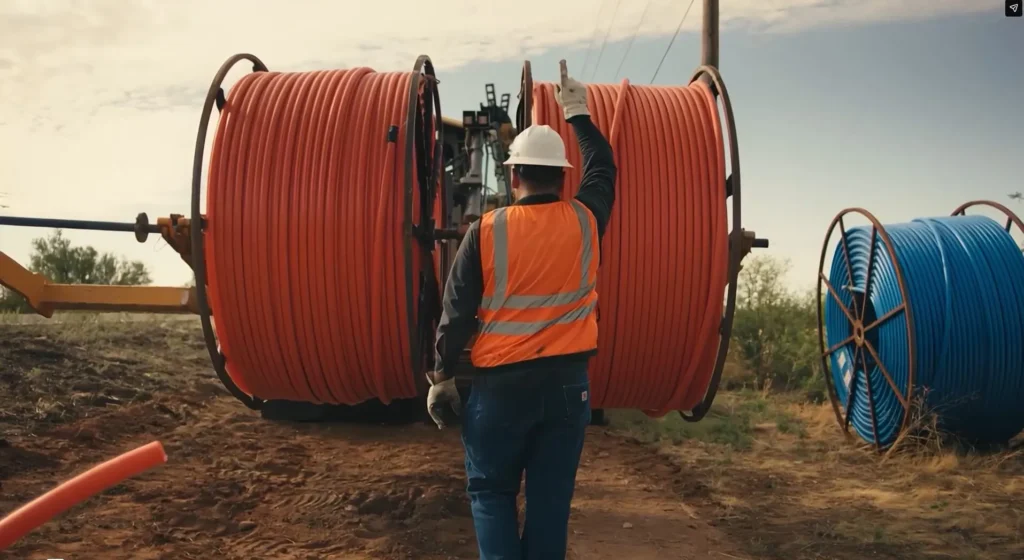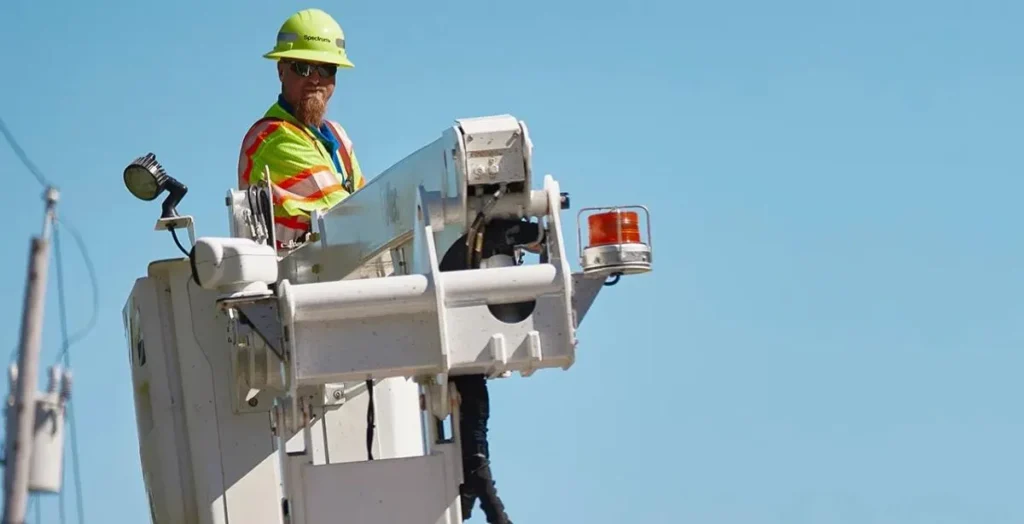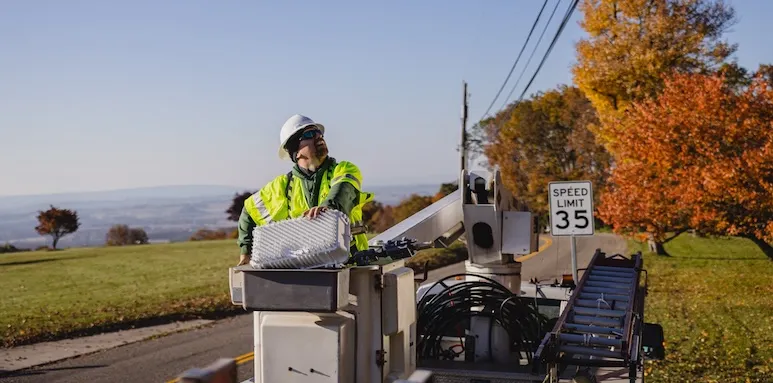As Labor Day approaches, Americans step back to celebrate the workers who fill a number of jobs around the country. A recent report found that the cable industry supports 3 million American jobs, up 1.2 million since 2002, with over 300 jobs in every congressional district. The individuals who fill these roles maintain the infrastructure that keeps the internet running and deliver the entertainment experiences that many Americans enjoy.
Over the past year, NCTA interviewed employees throughout the industry to explore some of their day-to-day responsibilities. In honor of Labor Day, below are snapshots of four types of American jobs that are making a significant impact in various ways.
Engineers
“Today’s network is supporting all types of internet traffic…” – Dean Stoneback, SCTE•ISBE
There are many types of engineering positions available in the cable industry. These roles are the backbone that provides Americans with connectivity. Engineers ensure that the networks are operating at top levels. This means that engineers are constantly monitoring a cable system’s performance, troubleshooting, and upgrading the tools for internet and television users. “Cable used to be just used for watching TV shows,” explained Dean Stoneback, senior director of engineering and standards at SCTE•ISBE, “but today’s network is supporting all types of internet traffic including people who work from home, home monitoring, and commercial traffic to business in addition to telephony and security services.” Engineers within the industry may be based in an office or they may have the additional responsibility of being customer-facing. Other types of engineers work on video programming, hardware, and software. However, no matter what the role, Engineers are integral to the process of keeping networks running smoothly.
Customer Care Experts
“You have to enjoy helping people and solving problems,” – Jon Coscia, Mediacom
If engineers are the backbone, customer service professionals are the lifeblood of the industry. Customer service agents interact with consumers and subscribers, answering questions around billing, appointments, order entries, and more. Other customer service jobs focus on repairs and troubleshooting in the field, ensuring that all services are delivered and issues are resolved. “You have to enjoy helping people and solving problems,” said Jon Coscia, group vice president of customer service at Mediacom, “It’s not for everyone. You have to enjoy being able to turn things around for people.” Coscia oversees more than 1,000 employees in the customer service arm of Mediacom including 10 call centers. He’s found that to be successful in these roles, customer service professionals need to have “thick skin” and the patience to listen to people’s problems all day. It’s also important to remember that customer service experts are also community members and customers themselves, and can be the biggest advocates for the people they serve.
Producers and Writers
“It’s always a team effort, in every production…” – Henry Morillo, WE TV
Cable programming networks also bring American audiences a diverse menu of TV shows, both scripted and unscripted. It takes a village of creative and innovative storytellers to put together a show that entertains and drives value for audiences. That’s where producers and writers come in. “It’s always a team effort, in every production, no matter what show it is, unscripted or scripted,” said Henry Morillo, a producer on WE TV. While every show is different in terms of how responsibilities are divided, Morillo shared that an unscripted television show often includes a field producer who works with the talent as well as directors who work on set. There are also post producers, like Morillo, who are tasked with editing and selecting content that will ultimately be shown in a final cut. Depending on the show, producers will sometimes work with the casts to conduct interview questions, or in the control room–giving them a front seat to how the story might be unfolding.
Development Professionals
“You always have to be looking ahead and not be afraid of all the new platforms…” – Will Marks, Ovation TV
Then there are those individuals who keep the industry posed for future success by working on new ways to deploy services to consumers. In recent years, this has meant looking to new technological platforms like apps. “You always have to be looking ahead and not be afraid of all the new platforms, all the new tech,” said Will Marks, vice president of business development and digital at Ovation TV. “That’s the only way you will keep the consumer excited and happy and have great new products and services for them in this space.” Behind the scenes, Marks and his team work to make it possible for viewers to watch TV on the go through a subscriber-based app. They do everything from research their audience, to strategy, to tech support. Ultimately, their goal is to keep delivering products and services that keep subscribers happy and the industry moving forward into the future.
Each of these jobs, and the individuals who fill them, play a critical role in the American economy. They keep our infrastructure strong and the internet network running. They provide services and products that consumers love and value. Ultimately, they are important contributors to a connected country.









